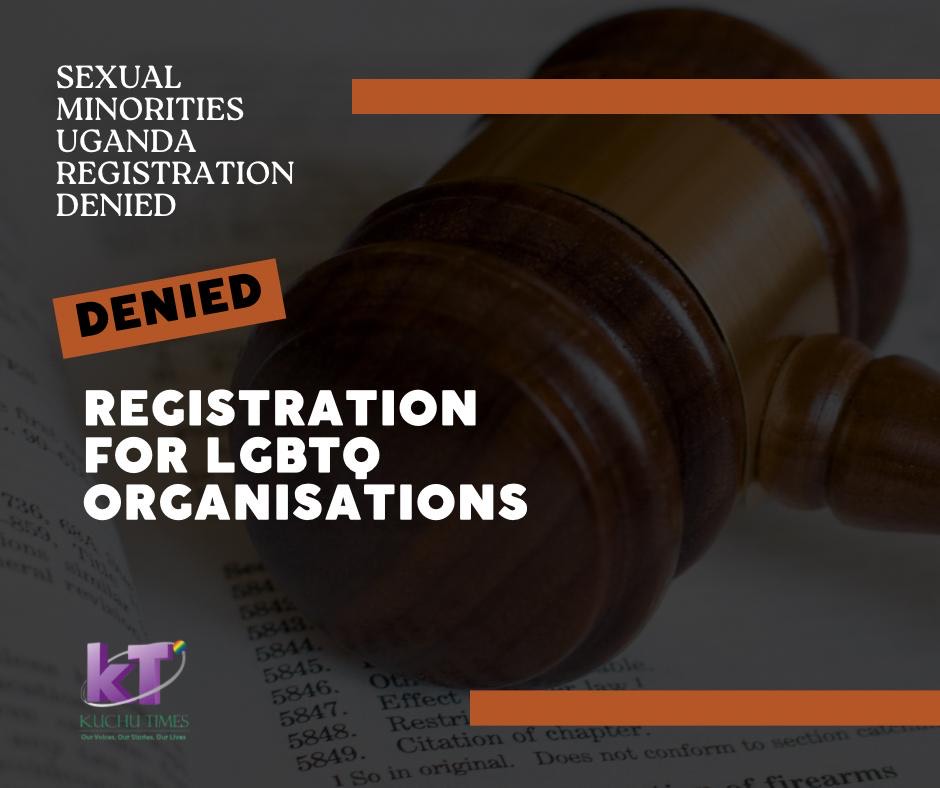In a heartbreaking blow to the LGBTQ+ community in Uganda, the Court of Appeal, led by Deputy Chief Justice Richard Batera, upheld the decision that deems it illegal to register organizations promoting LGBTQ activities in the country. The case in question involved Sexual Minorities Uganda (SMUG), an umbrella organization that brings together various LGBTQ groups in the nation. After a lengthy 12-year legal battle, the court’s decision reinforces the discriminatory stance taken by the Ugandan government and raises concerns about the broader implications for the LGBTQ+ community in the country.
The struggle for LGBTQ+ rights in Uganda has been full of challenges.SMUG, seeking to unite and advocate for the rights of sexual minorities, faced rejection from the Uganda Registration Services Bureau when attempting to register its name. The bureau deemed the organization’s name undesirable, setting the stage for a protracted legal battle that would eventually reach the Court of Appeal. Despite the hopes of the LGBTQ+ community and human rights advocates, the Court of Appeal, in a disappointing move, yesterday maintained the high court decision that bars the registration of organizations supporting LGBTQ activities. This decision essentially restricts the ability of LGBTQ+ groups to formalize their presence, leaving them vulnerable to discrimination and marginalization. Deputy Chief Justice Batera’s leadership in this decision further solidifies the government’s oppressive stance on LGBTQ+ rights.
According to a statement released by SMUG last evening, while the ruling seemingly focused on the naming issue, it also delved into the perceived objectives of SMUG, particularly its advocacy for the rights of LGBTQ+ persons which the court deemed contrary to national objectives and state policies.
The verdict’s impact on the LGBTQ+ community in Uganda is profound, amplifying the existing challenges faced by sexual and gender minorities. The inability to officially register organizations like SMUG limits our capacity to access resources, engage in advocacy, and provide essential support services. This setback not only impedes the community’s ability to foster unity but also leaves us susceptible to heightened discrimination, violence, and exclusion.
Furthermore, the court’s decision reinforces the hostile environment created by the Anti-Homosexuality Act 2023, making it increasingly difficult for LGBTQ+ individuals to lead open and authentic lives. The fear of persecution and legal consequences looms larger, pushing many members of the community further into the shadows. This decision also raises concerns about the fate of pending petitions challenging the Anti-Homosexuality Act 2023. With organizations like SMUG unable to formally operate, the legal landscape becomes even more challenging for those seeking to challenge discriminatory legislation. The court’s ruling sets a precedent that hampers the efforts of activists and legal advocates fighting for the repeal of laws that criminalize same-sex relations.
“The freedom of association continues to be trampled upon. This makes our work harder than it was before. However this loss shall not discourage us but rather motivate us to continue to use the courts of law until they become independent. Let us hope this does not set a precedent for the petitions regarding AHA 2023 to be handled since 2 out of 5 judges on this ruling are on the petition bench,” Kasha Jacqueline Nabagesera expressed her concerns.
The implications of this court decision extend beyond SMUG and directly affect the entire LGBTQ community in Uganda. By restricting the registration of organizations that advocate for LGBTQ rights, the government is effectively stifling the collective voice of sexual minorities. The absence of a united front makes it challenging to challenge discriminatory laws and policies, leaving the community isolated in their struggle for recognition and equality.
The international community must not remain silent in the face of this setback for LGBTQ rights in Uganda. Advocacy groups, human rights organizations, and governments worldwide should condemn the court’s decision and urge the Ugandan government to respect and protect the rights of all individuals, regardless of their sexual orientation or gender identity.
Diplomatic pressure, sanctions, and public condemnation can serve as powerful tools to encourage the Ugandan government to reconsider its stance on LGBTQ+ rights. It is crucial for the global community to stand in solidarity with the LGBTQ+ community in Uganda and work towards fostering an environment that respects and values diversity. The international community must rally behind the LGBTQ+ community in Uganda, condemning this regressive decision and urging the government to uphold the principles of equality, dignity, and human rights. The fight for LGBTQ+ rights in Uganda is far from over, and it requires a united and unwavering commitment from individuals, organizations, and governments around the world to challenge discriminatory laws and promote a more inclusive and just society.




